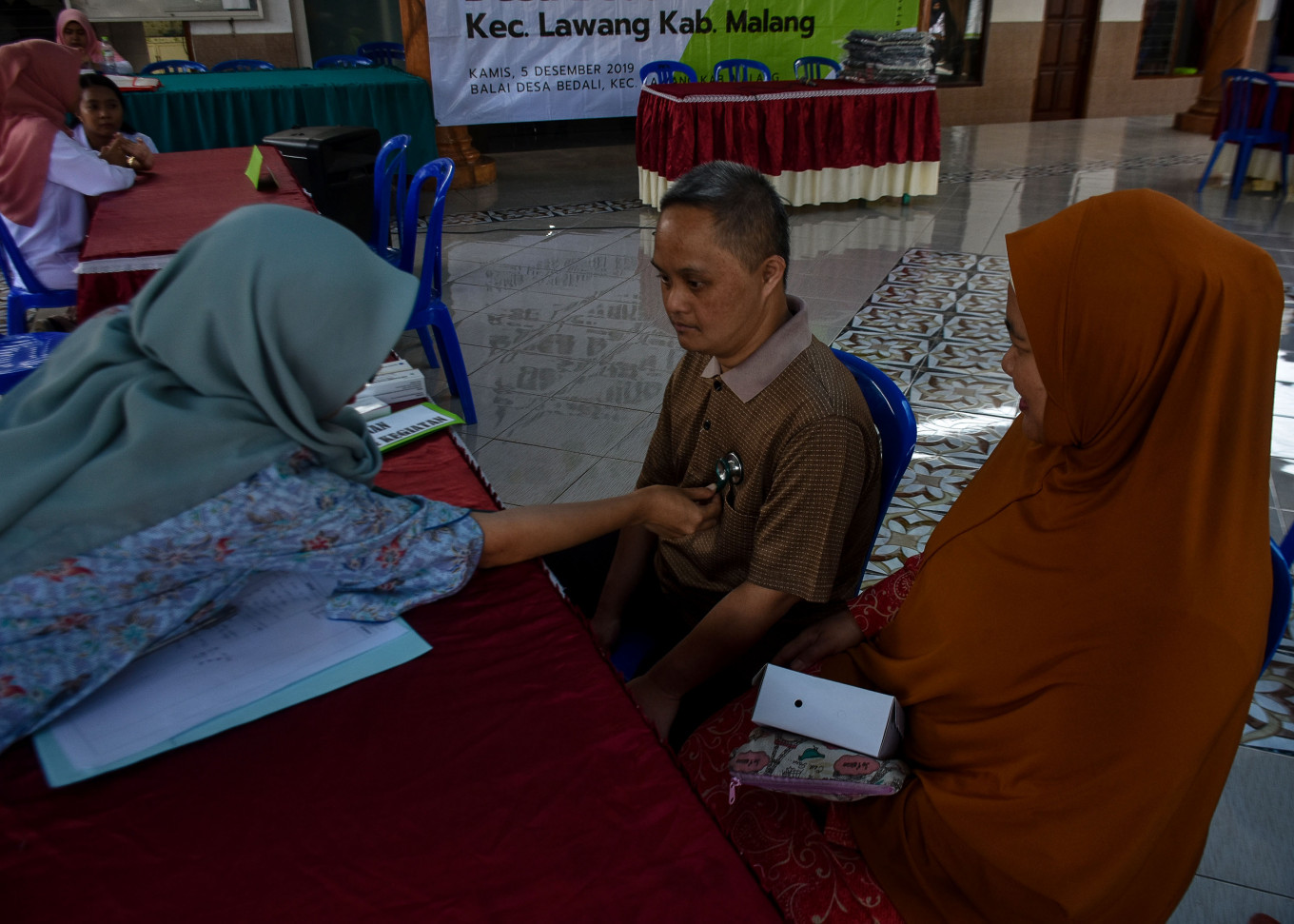Popular Reads
Top Results
Can't find what you're looking for?
View all search resultsPopular Reads
Top Results
Can't find what you're looking for?
View all search resultsEast Java’s first Posyandu for people with disabilities opens in Malang
Posyandu head Ken Karta said the Posyandu was established because of the difficulty that people with disabilities in the area faced in accessing health services at community health centers (Puskesmas) and hospitals.
Change text size
Gift Premium Articles
to Anyone
V
illage officials, healthcare providers and disability advocates have teamed up to create East Java’s first integrated health services post (Posyandu), to help people with disabilities in Bedali village, Lawang district, Malang.
The Posyandu - whose services include health examinations and medication, physiotherapy, counseling, parenting, arts and crafts training, as well as shuttle services - has been available at the Bedali village hall every first Thursday of the month since December, 2019, operating from 8 a.m. to noon.
“These [services] are all free,” Posyandu head Ken Karta said at the post’s opening day last week, adding that the facility had 20 staff of different backgrounds, including psychiatrists, general practitioners, midwives and volunteers.
Ken said the Posyandu was established because of the difficulty that people with disabilities in the area faced in accessing health services at community health centers (Puskesmas) and hospitals.
He said disabled children and adults paid an average of Rp 200,000 (US$14.63) per medical examination, not including transportation costs, which could be very burdensome for low-income families.
These hurdles led the village administration to take the initiative to work together with a number of related institutions - including disability advocacy group Lingkar Sosial (Linksos) Indonesia, the Lawang district Puskesmas, and the Radjiman Wediodiningrat psychiatric hospital - to establish the Posyandu.
The Puskesmas helped provide the general practitioners, midwives and Posyandu volunteers; the psychiatric hospital contributed psychiatrists; while Lingksos provided business and marketing training. The village administration, meanwhile, lent its hall to be used as a venue for the Posyandu and also provided ambulances to offer shuttle services.
Mustajab, a 39-year-old Bedali resident, who has a daughter with a disability, said that he felt lucky that the Posyandu was there and was located only 500 meters from his house. He said he previously had to go to the Lawang psychiatric hospital to get health services for his daughter.
“It’s 9 kilometers from home. I spend about Rp 150,000 per visit,” he said.
Siti Kotimah, 44, who also has a daughter with a disability, echoed Mustajab’s sentiments. She said the Posyandu was even better than the hospital because she could meet with friends there to share knowledge. It also offered training and shuttle facilities.
“That’s what makes it different from Lawang psychiatric hospital,” she said.
To access the services at the Posyandu, residents only need to fill in the waiting list form, have their weight and waist measured, and their blood pressure checked. A staff member will then ask about their health conditions over the past month, then a physician will examine them and provide medical advice, as well prescribe medications before they are finally examined by a psychiatrist.
The health services are preceded by group exercise and play sessions and the Posyandu also provides training for people with disabilities to make floor mats.
Ken said that since the Posyandu opened last December, the number of disabled people registered in the village’s social welfare information system next generation (SIKS-NG) had increased tenfold to 90 from nine.
“Many were not registered in the SIKS-NG previously because their families were ashamed,” he said. “Some had even been excluded from their family cards [KK] for the same reason, making them ineligible for health services and insurance provided by the government.”
“That’s why we proactively come to them. At the Posyandu everyone can get the same services regardless of their residence status,” he said, adding that Posyandu volunteers would help them get registered in the SIKS-NG and obtain ID cards.
Ken said that Posyandu for people with disabilities could easily be established in other villages and subdistricts, as long as the respective local officials had the will to do so.










